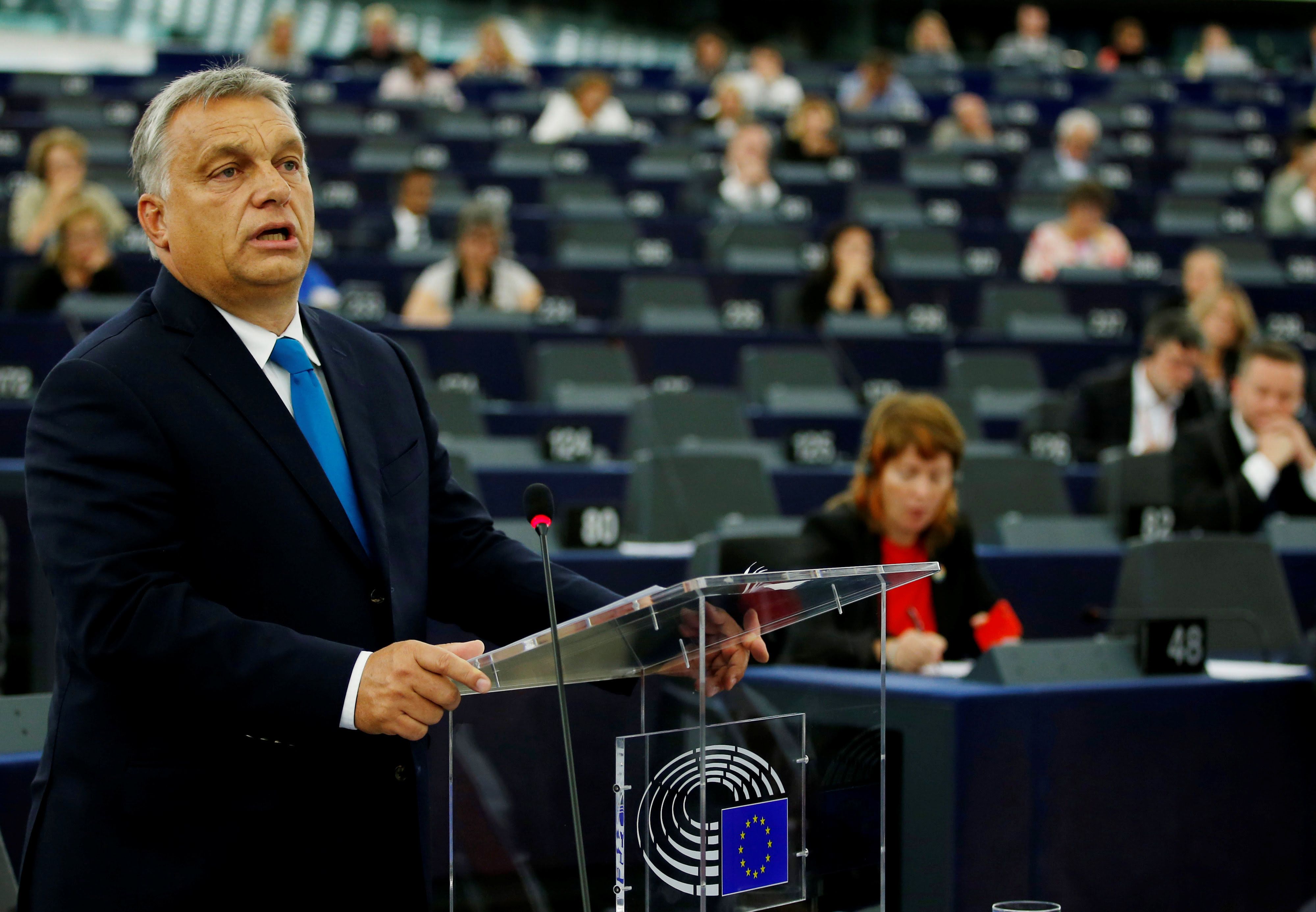September 14, 2018
This week, more than two-thirds of members of the European Parliament approved unprecedented disciplinary action against Hungary in response to alleged violations of EU core values. The motion accuses the government of Prime Minister Viktor Orban of refusing to accept migrants according to EU quotas agreed by a majority vote of EU members. It rebukes the Hungarian government for its attacks on the media, minorities, and the rule of law.
Orban called the charges blackmail and an insult to Hungary’s people. His foreign minister denounced them as the "petty revenge" of "pro-immigration" bureaucrats.
Each side claims it is defending “European values.” Most members of the European Parliament define those values as freedom of speech, respect for human rights, judicial independence, and separation of powers within a democracy. Orban and likeminded allies in other countries define them as local values and protection of traditional ethnic and religious identity against mandates from politicians in other countries. Europeans say Orban is bullying Hungarians who don’t support him. Orban says European institutions are bullying Hungary.What power does the EU have to discipline Hungary? That question now rests in the hands of the EU Council—the heads of government of the 28 EU member states. Stripping Hungary of voting rights would require a unanimous vote. Poland, which may soon face similar disciplinary pressure from the EU, would cast a veto.
The European Commission has proposed measures that would tie some of the money that member states receive as part of the EU budget to respect for the rule of law. That means countries like Hungary and Poland might one day face substantial cuts in EU subsidies.
That’s a big deal for smaller countries that receive more from the EU budget than they contribute. Hungary contributed €924 million to the EU budget in 2016, it received €4.5 billion in EU funding in the same year.
But those changes are not imminent, and this action against Hungary is the first of its kind. There are still more questions than answers.
In the meantime, Brussels must hope that Hungary will take steps to avoid pariah status, but this latest action may serve mainly to further elevate Orban’s stature as champion of those who say the EU lacks respect for the values of its member states.
More For You
World Central Kitchen staff hand out free soup in a neighbourhood that experiences electricity and heating outages following recent Russian attacks on Ukraine’s civilian infrastructure during subzero temperatures in Kyiv, Ukraine February 3, 2026.
REUTERS/Thomas Peter
1,170: The number of high-rise buildings in Kyiv that were left without heating following a barrage of Russian attacks last night on Ukraine’s capital and its energy facilities, per Kyiv Mayor Vitali Klitschko.
Most Popular
What We’re Watching: US critical minerals summit, Rafah crossing reopens, Border violence in Pakistan
Feb 02, 2026
U.S. President Donald Trump and Japanese Prime Minister Sanae Takaichi hold up signed documents regarding securing the supply of critical minerals and rare earths, at a bilateral meeting at Akasaka Palace in Tokyo, Japan, October 28, 2025.
REUTERS/Evelyn Hockstein
Representatives from the European Union, United Kingdom, Japan, and others will meet in Washington this week to discuss a strategic alliance on critical minerals.
Hard numbers: Large protests in Czechia, UAE-linked firm has large stake in the president’s company, & More
Feb 02, 2026
People take part in a rally in support of Czech President Petr Pavel, organised by Million Moments for Democracy group in reaction to dispute between President Pavel and Czech Foreign Minister and Motorists chair Petr Macinka, in Prague, Czech Republic, February 1, 2026.
REUTERS/Eva Korinkova
80,000: The number of people estimated to be in the streets of Czechia on Sunday to show their support for President Petr Pavel after he blocked the nomination of an environmental minister who performed the Nazi salute and posted Nazi memorabilia.
US President Donald Trump and musician Nicki Minaj hold hands onstage at the US Treasury Department's Trump Accounts Summit, in Washington, D.C., USA, on January 28, 2026.
REUTERS/Kevin Lamarque
The US has started handing $1,000 to the bank accounts of newborn babies. But can policies like this one help boost sagging birthrates in advanced democracies?
© 2025 GZERO Media. All Rights Reserved | A Eurasia Group media company.
